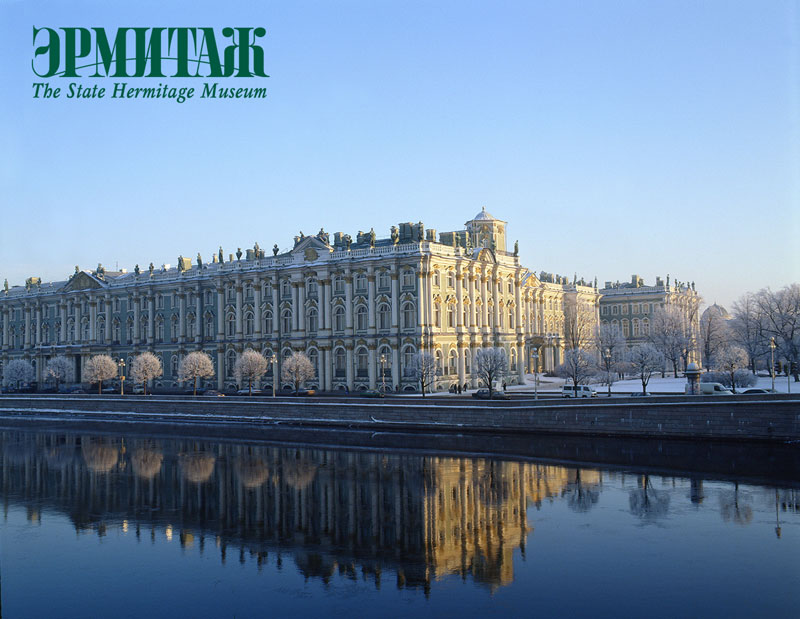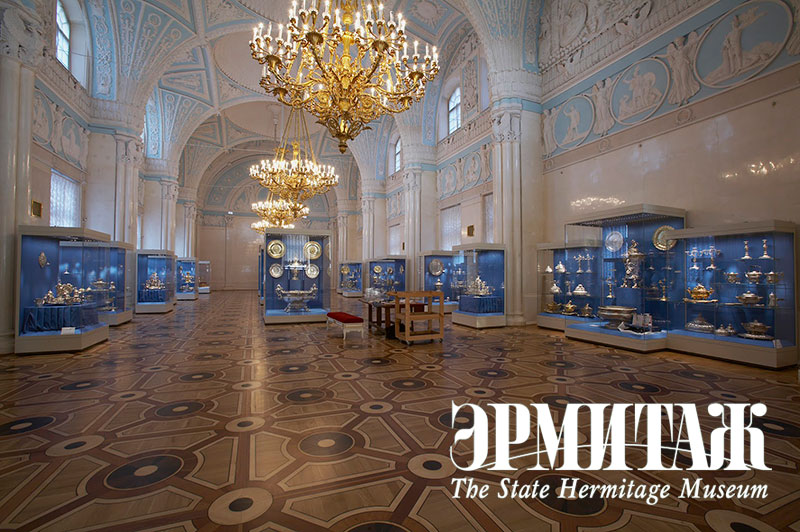The State Hermitage is one of the greatest art museums in the world. Its collections numbering about 3 000 000 items feature the art and culture of Antiquity, Western Europe, Oriental countries and Russia.

The Main Museum Complex occupies five buildings which form a brilliant architectural ensemble. The most famous of them is the Winter Palace, a former residence of Russian emperors, designed by Bartolommeo Rastrelli and built between 1754 and 1762. It was Catherine II’s idea to construct the Small Hermitage (Jean-Baptiste Vallin de la Mothe and Yuri Velten, 1764-75), the Big or Old Hermitage (Yuri Velten, 1771-1787) and the Hermitage Theatre (Giacomo Quarenghi, 1783-1787) alongside the official residence. The New Hermitage designed for the “Imperial Museum” by Leo von Klenze and built in 1842-51 was the last element added to the architectural complex which is now one of the best sights in St Petersburg’s historical centre.
The exhibition complex of the State Hermitage also includes Menshikov Palace – the palace of St. Petersburg’s first Governor, Alexander Menshikov; the General Staff Building – the French paintings of the 19th–20th centuries are on display here, also it is the main venue for contemporary art; the Winter Palace of Peter the Great and the Hermitage Theatre; The Museum of the Imperial Porcelain Factory, located on the premises of the Imperial Porcelain Factory Ltd.
The museum collections
The history of the Hermitage as a museum collection is traditionally held to have begun in 1764 when Catherine II bought a large number of Western European paintings. For more than two centuries the collection kept growing. The Hermitage is a home to 17 000 paintings and about 620 000 drawings and prints, 12 000 sculptures and 350 000 works of applied art, 760 000 archaeological exhibits and more than 1 000 000 coins and medals.

Highlights of the museum are works by most famous European old masters — Leonardo da Vinci, Raphael, Titian, Rembrandt and Rubens. It boasts a superb, one of the best in the world, collections of Dutch painting and a fine stock of French paintings from the 19th and 20th centuries. Its collections of drawings and prints and of applied art are among the richest in the world. The museum has exquisite Scythian gold objects and ancient Greek jewellery.
